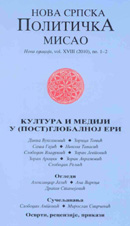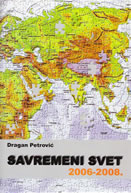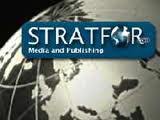| NSPM in English | |||
Serbia: A Weimar Republic? |
 |
 |
 |
| петак, 15. октобар 2010. | |
|
(Stratfor 14. 10. 2010)
The Dutch decision has been widely perceived by Serbians as a reaction to the riots in Belgrade on Oct. 10, led by well-organized and motivated violent nationalist groups — self-styled “patriotic movements” — and subsequent Oct. 12 unrest in Genoa at a Serbia-Italy soccer match by some of the same elements. However, the Netherlands would have probably made its decision no matter the events in Belgrade and Genoa, largely because of a combination of Dutch politics — which have taken a turn to the right, and therefore markedly against EU enlargement — and Dutch insistence on maintaining an EU commitment to a certain set of membership standards regardless of supposed geopolitical benefits. The Dutch decision on Serbia may not seem the obvious pick for the key event of the day. But if history teaches us anything about the Balkans it is that its supposedly petty politics have a tendency of forcing great powers to shift their focus to its banal instability. “We find ourselves slowly discerning a portrait of a Serbia whose past 10 years are beginning to resemble those of the German Weimar Republic.” The problem for Serbia, however, was not just that the opposition was united merely in its desire to remove Milosevic from power. The problem was also that Milosevic’s overthrow was not really a violent revolution, allowing the institutions and structures of power under Milosevic to remain very much in place. The civilian bureaucracy he dominated, law enforcement organizations he painstakingly cajoled to serve him, and complex links between organized crime and the state that he purposefully fostered remained in place. The pro-West government that followed, led by Prime Minister Zoran Djindjic, replaced the heads of departments, but had the thankless task of weeding out former influences and connections between Serbia’s underworld and the government. The government’s orders were blatantly ignored or siphoned via informants in key institutions of law enforcement and intelligence to organized crime networks. That Djindjic was making progress is now understood because his efforts to eliminate the shadowy world of organized crime ultimately cost him his life in 2003. And herein lies the irony of the Dutch decision. The West has for a long time been skeptical of Serbia’s political will to confront its past. But the events of the past few days in Belgrade and Genoa in fact illustrate that for Serbia the problem may be more a lack of capacity, which is in many ways much more serious. It is better to be somewhat obstinate — but capable — than to openly lack state power. At least the former can be fixed with a mere switch in attitude; the latter can in fact motivate extremist elements to intimidate the government further. Belgrade also can’t necessarily come clean about its lack of capacity and ask for help, however, because if Europe understood just how impotent the government is, it is not guaranteed it would try to help by speeding up EU membership. This is particularly so at a time when Europe is consumed with institutional and economic problems unearthed by its financial crisis. Serbia’s president, Tadic — like Djindjic — is therefore left with the nearly impossible job of masquerading Belgrade’s lack of potency, offering Europe excuses, while dealing with the unmet expectations of his electorate. Meanwhile, in Serbia the violent soccer “fans” — whose supposed origin in sport fandom belies their organizational capacity, violent history of participating in ethnic cleansing of the 1990s and links to organized crime — and violent nationalist groups are continuously finding new recruits in the underemployed, disaffected and largely futureless youth. Generations born in the 1990s have no point of reference to Serbia’s golden years within Yugoslavia and have come to expect as normal the political unrest, street violence and extreme nationalism. Serbia and its youth also do not lack disappointment, anger and angst, particularly toward the West. The West conducted a three month bombing campaign against Serbia in 1999, offered practically unanimous support for Kosovo independence and ultimately forced Belgrade to accept the modern equivalent of Germany’s WWI “War Guilt Clause” for Belgrade’s role in conflicts of the 1990s. Concurrently, the economy is in a state of collapse due to a combination of continued political instability — which steers away meaningful investments — and the ongoing global economic crisis. The average monthly wage is now below even that of neighboring Albania, which for Serbs is tantamount to a civilizational collapse. These are the breeding grounds for this week’s extremism. And here we find ourselves slowly discerning a portrait of a Serbia whose past 10 years are beginning to resemble those of the German Weimar Republic. Paralleling Weimar’s 15-year existence, Serbia has had a number of setbacks: forced to accept defeat and blame for wars it believes it lost due to the West’s interventions, keep paying for the sins of a regime it feels it overthrew on its own and lastly deal with an economic crisis it had no control over and cannot deal with alone. And to re-enter the Western club of nations it has — much like interwar Germany — introduced democratic institutions at a time when the fight against violent nationalist groups requires a particularly heavy, potentially undemocratic hand. The greatest danger for Serbia is not that the state collapses, but that — as in the Weimar Republic — certain political forces in the country ultimately decide that it is easier to make compromises with extremist elements than continue toiling at strengthening the republic against both international and domestic impediments. And such a Serbia would shift global focus very quickly back to the Balkans. |
Од истог аутора
- The Nabucco West Project Comes to an End
- Remaking the Eurozone in a German Image
- NATO's Lack of a Strategic Concept
- Surveying Turkish Influence in the Western Balkans
- The Geopolitics of Turkey: Searching for More
- Kosovo – Consequences of the ICJ Opinion
- Kyrgyzstan and the Russian Resurgence
- Russia, Belarus, Kazakhstan: A Customs Deal and a Way Forward for Moscow
- Montenegro's Membership in NATO and Serbia's Position
- ЕУ: Убрзано ширење на Балкан
- The Return of Germany
Остали чланци у рубрици
- Playing With Fire in Ukraine
- Kosovo as a res extra commercium and the alchemy of colonization
- The Balkans XX years after NATO aggression: the case of the Republic of Srpska – past, present and future
- Из архиве - Remarks Before the Foreign Affairs Committee of the European Parliament
- Dysfunction in the Balkans - Can the Post-Yugoslav Settlement Survive?
- Serbia’s latest would-be savior is a modernizer, a strongman - or both
- Why the Ukraine Crisis Is the West’s Fault
- The Ghosts of World War I Circle over Ukraine
- Nato's action plan in Ukraine is right out of Dr Strangelove
- Why Yanukovych Said No to Europe

.jpg)








 The Dutch parliament unanimously voted on Wednesday to postpone Serbia’s candidacy for European Union (EU) membership until at least December. The decision came even though the other 26 EU member states made it clear that they favored Belgrade’s candidacy. It also came after U.S. Secretary of State Hillary Clinton made glowing statements about Belgrade’s pro-Western government and specifically its president, Boris Tadic, during her visit on Oct. 12, calling Serbia a “leader in Europe” and unreservedly throwing Washington’s support behind Belgrade’s EU bid.
The Dutch parliament unanimously voted on Wednesday to postpone Serbia’s candidacy for European Union (EU) membership until at least December. The decision came even though the other 26 EU member states made it clear that they favored Belgrade’s candidacy. It also came after U.S. Secretary of State Hillary Clinton made glowing statements about Belgrade’s pro-Western government and specifically its president, Boris Tadic, during her visit on Oct. 12, calling Serbia a “leader in Europe” and unreservedly throwing Washington’s support behind Belgrade’s EU bid.












